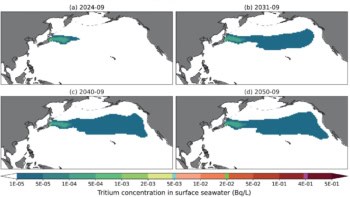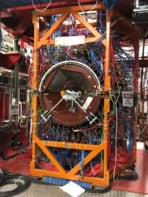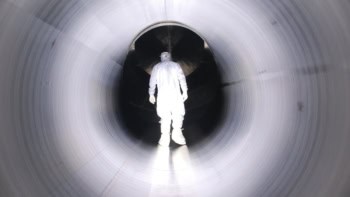After three years of deliberation, a government-commissioned inquiry has concluded that the UK should bury its nuclear waste deep underground. The Committee on Radioactive Waste Management (CoRWM) laid out its solution to the decades-old waste problem in a press conference held today. But it told reporters that because it will take many years to dispose of the waste in this way, the construction of a permanent repository must be complemented by a robust system of interim storage.
CoRWM was appointed in 2003 to recommend what to do with the roughly 470,000 cubic metres of waste in the UK for which there is no agreed long-term disposal strategy. This includes both existing waste and waste that will be generated over the next few decades.
The 11-strong committee, which is made up of both scientists and non scientists, is chaired by economist Gordon MacKerron. Last year, after discarding more exotic solutions such as sending the waste into space or putting it at the bottom of the sea, the panel drew up a shortlist of four options. These included two types of “geological disposal” in which the waste is buried several hundred metres underground — in either a sealed repository or one from which the waste can be retrieved for up to several hundred years after it is put in the ground. The other two options were continuous temporary storage just above or below the Earth’s surface and the burial of waste just below the surface.
The committee has now discounted the last two options, preferring instead geological disposal. But it says that this approach must be complemented by secure interim storage, pointing out that a repository might not be ready for perhaps 50 years if there are technical difficulties in developing the repository or objections from the local community.
However, CoRWM has not stated which type of geological disposal should be used. In fact, it has yet to decide whether or not it will state a preference in its final report, which it is due to release in July. It has also not said where the geological repository should be located — this was not part of its remit — but it believes that no matter where the dump is located it must have the blessing of the local residents. “The key decisions must involve potential host communities and they should have an equal footing in all relevant decision making,” says MacKerron.
The committee says that in reaching its decisions it has examined the technical, scientific, ethical and social aspects of all the potential options, having consulted over 200 technical experts and listened to thousands of members of the public and other people with an interest in the plans. But the panel has not had a smooth ride. Last year, one of its members, Keith Baverstock, was dismissed from the group and another, David Ball, walked out. Ball reportedly became disenchanted with what he saw as the panel’s emphasis of public consultation over expert advice.



